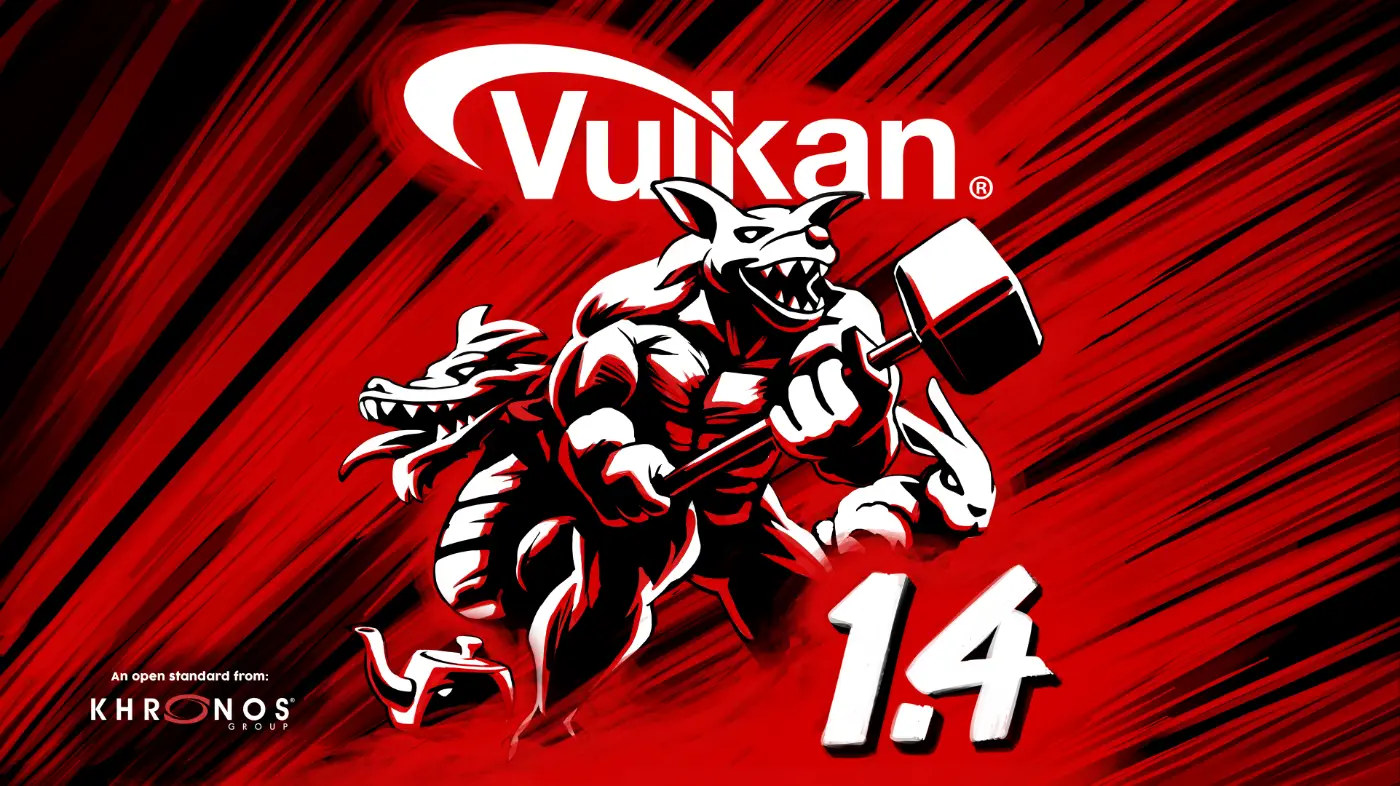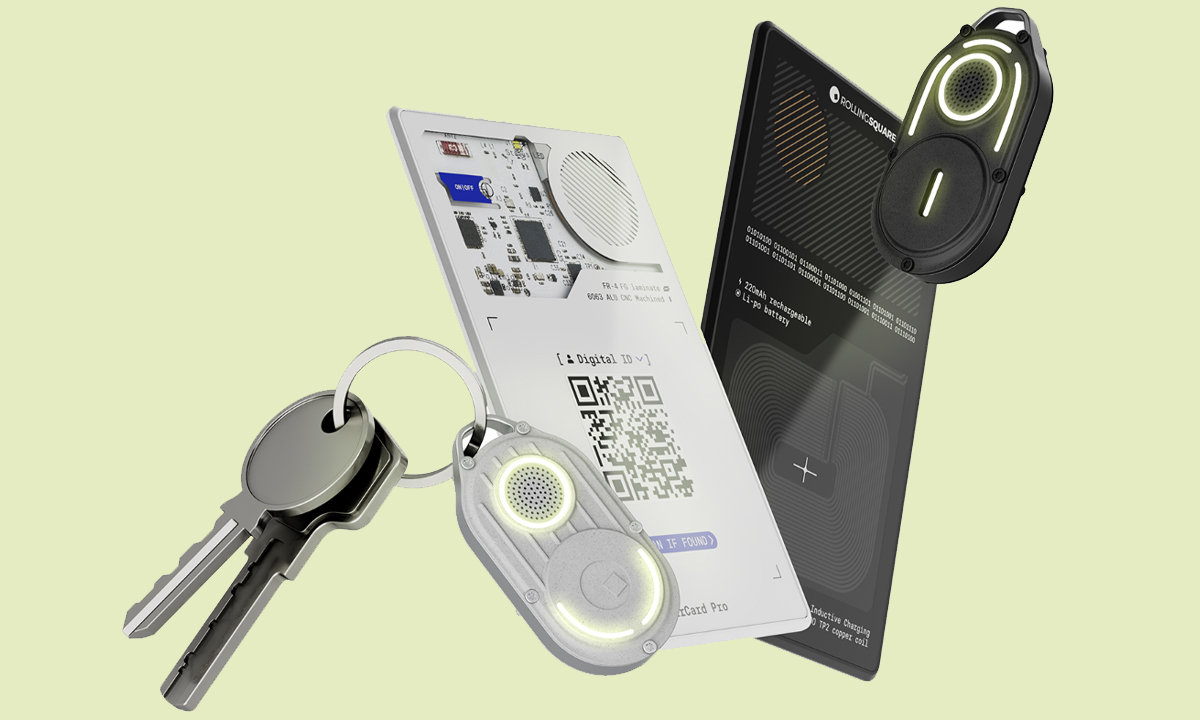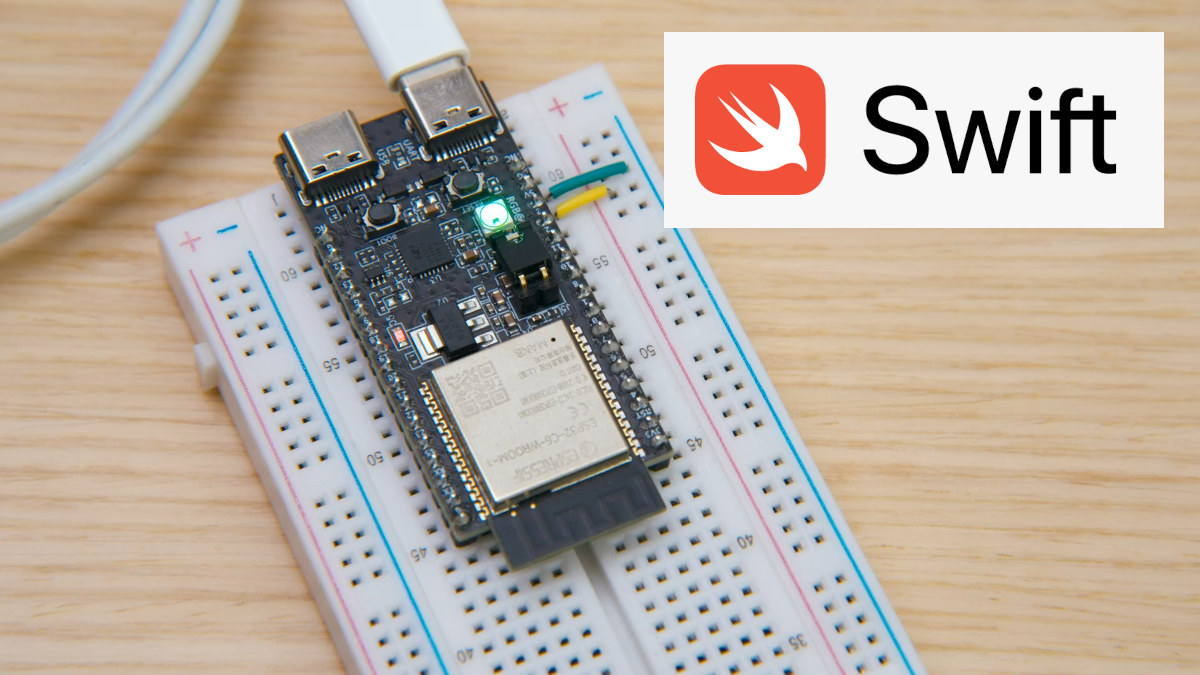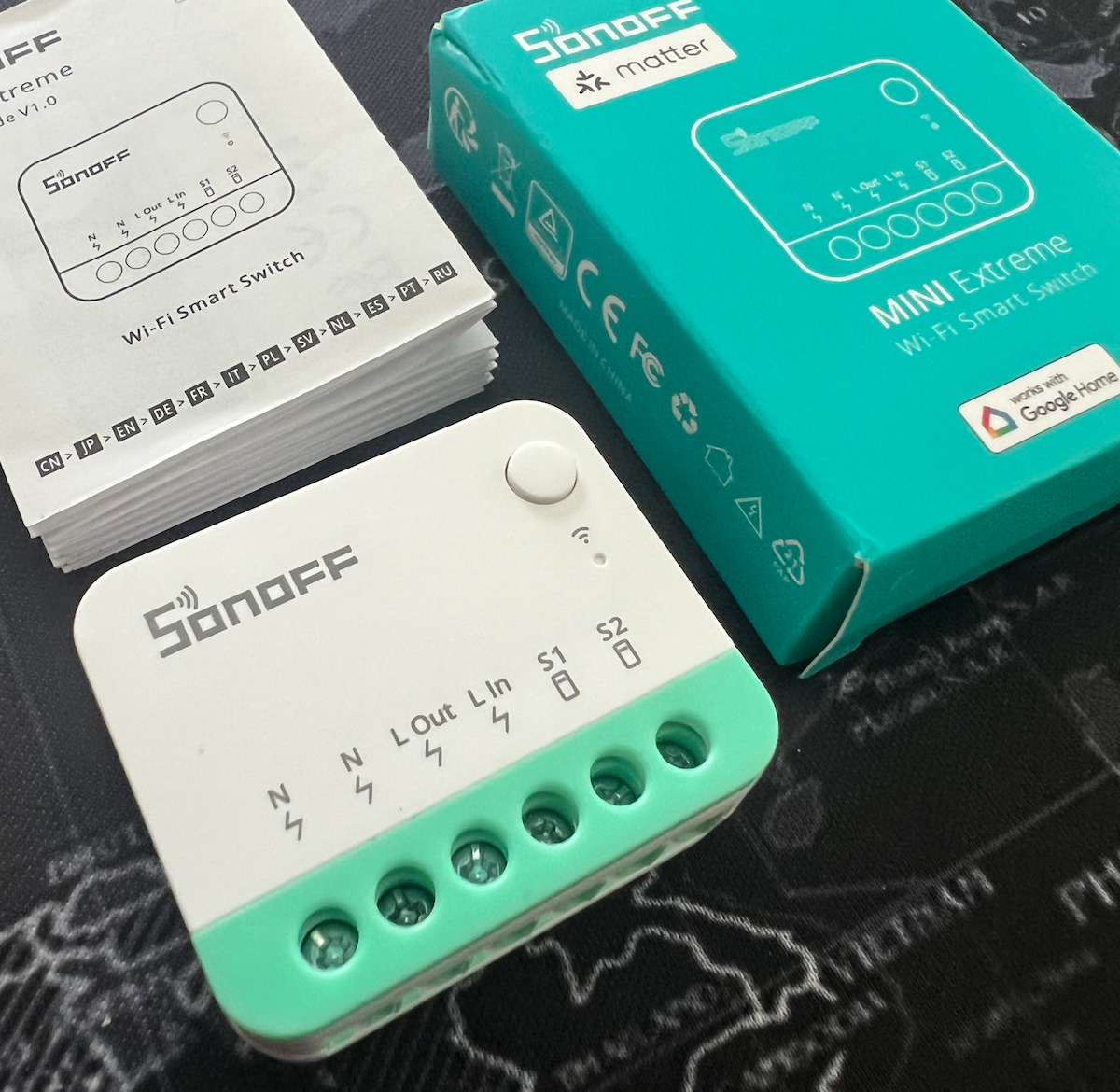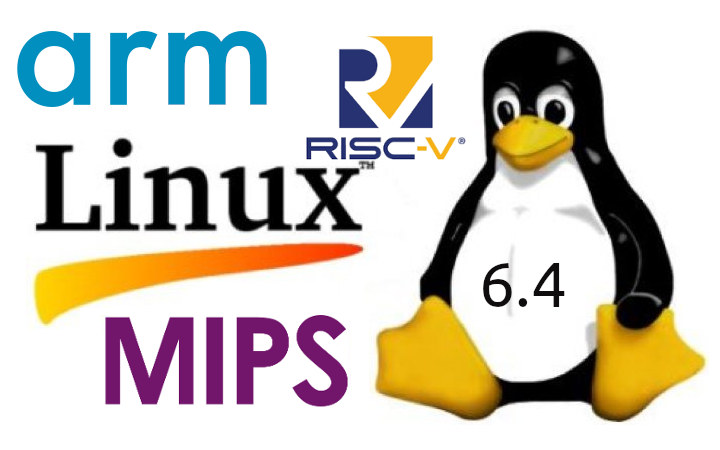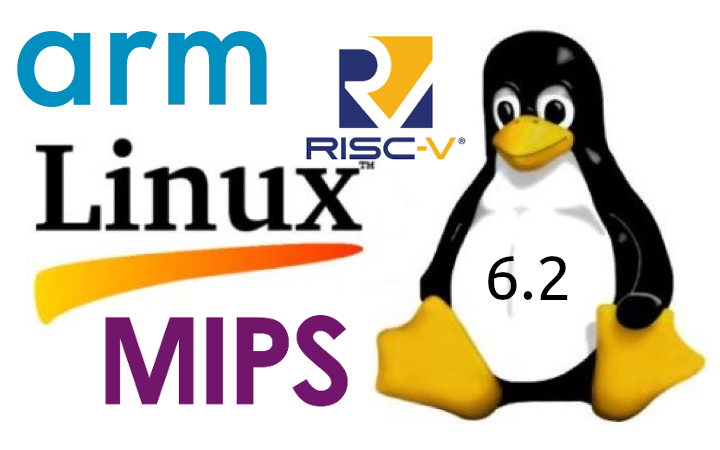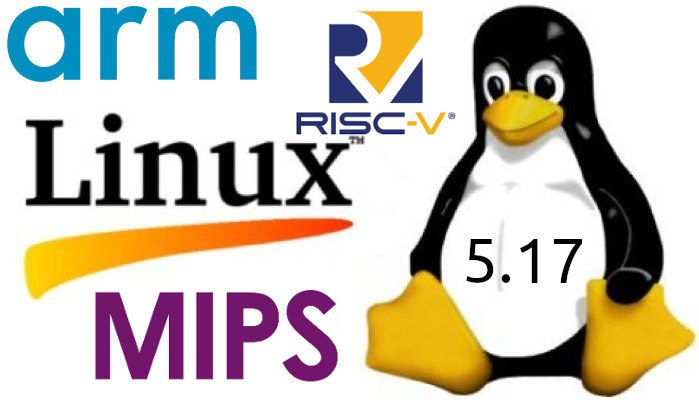Olimex RP2040pc is an inexpensive “all-in-one” computer board based on a Raspberry Pi RP2040 MCU with support for Apple //e, Apple ][+, and Oric Atmos emulation through the Reload emulator. The board features an HDMI port, stereo audio, four USB ports, and two UEXT expansion connectors. It’s not quite the first RP2040 retrocomputing board from Olimex, as they introduced the RP2040-PICO-PC in 2021 with an HDMI port, a 3.5mm audio jack, and a microSD card slot before launching the Olimex NEO6502, which combines a MOS6502 MCU for Apple II, Oric, and Commodore 64 emulators with an RP2040 for HDMI/DVI video output and a few other things. The RP2040pc is similar to the latter, but with more ports and features, and everything is handled by the Raspberry Pi RP2040 microcontroller. Olimex RP2040pc specifications: Microcontroller – Raspberry Pi RP2040 dual-core Cortex-M0+ MCU @ 133 MHz with 264 KB SRAM Storage – 16MB […]
Vulkan 1.4 3D graphics and compute API released
The Khronos Group has just announced the release of Vulkan 1.4 cross-platform 3D graphics and compute API. The new release makes some of the optional extensions and features mandatory, adds streaming transfers, and supports 8K rendering on up to eight targets. Minimum hardware limits have also been increased including at least seven maxBoundDescriptorSets and eight maxColorAttachments. Vulkan 1.4 highlights: Streaming Transfers: new implementation requirements to ensure applications can stream large quantities of data to a device while simultaneously rendering at full performance. Previously optional extensions and features critical to emerging high-performance applications are now mandatory in Vulkan 1.4, ensuring availability across multiple platforms. These include push descriptors, dynamic rendering local reads, and scalar block layouts. Maintenance extensions up to and including VK_KHR_maintenance6 are now part of the core Vulkan 1.4 specification. 8K rendering with up to eight separate render targets is now guaranteed to be supported, along with several other […]
AirCard Pro and AirNotch Pro Bluetooth trackers support Google/Apple network integration (Crowdfunding)
Rolling Square introduces its latest Bluetooth trackers – AirNotch Pro and AirCard Pro – designed for use with personal items like keys, wallets, bags, and more. Both trackers are designed for portability, and the AirNotch Pro is designed as a keyring, while the AirCard Pro suits wallets with a thinner, credit card-like design. The products integrate into Apple and Google’s tracking networks, with some features currently limited to Apple. Previously, we covered the SenseCAP T1000, a credit card-sized LoRaWAN GPS tracker powered by Semtech’s LR1110. Several years ago we covered some Bluetooth beacons such as the Puck.js or RuuviTag, but we have yet to explore Bluetooth-only trackers with wireless charging capabilities. Rolling Square AirCard Pro Bluetooth trackers AirCard Pro technical features: Network White version – Operates on Google’s Android Find My Device network (Android 6 or above) Black version – Operates on Apple Find My network (iOS 14 or above) […]
Apple’s Embedded Swift programming language supports ESP32-C6, Raspberry Pi RP2040, STM32F7, nRF52840 microcontrollers
Apple has released a beta version of Embedded Swift that notably works with Espressif ESP32-C6 wireless RISC-V microcontroller, and the company also built a Matter sample based on ESP-IDF and ESP-Matter SDKs. Embedded Swift is not limited to the ESP32-C6 and supports other microcontrollers from STMicro, Raspberry Pi, Nordic Semi, etc… Apple Swift programming language is mostly designed for mobile app development, but we’ve also seen it being used on Mad Machine’s SwiftIO board powered by a 600 MHz NXP i.MX RT1052 Arm Cortex-M7 crossover processor and the tiny SwiftIO Micro launched a few years later. The company has now decided to create a subset of the Swift programming language better suited to microcontrollers simply called Embedded Swift that’s currently working on STMicro STM32F746, Raspberry Pi Pico, nRF52840, and ESP32-C6. The “Go small with Embedded Swift” presentation at WWDC 2024 shows how to get started with Embedded Swift using Espressif […]
Review of the first Matter device by SONOFF – MINI Extreme Wi-Fi Smart Switch (MINIR4M)
We have just received the first Matter product from SONOFF for review, which is the Mini Extreme Switch (MINIR4M) model. Its external appearance closely resembles the Mini Extreme Switch Wifi (MINIR4) which we reviewed previously. They have different colors to distinguish between WiFi (Orange) and Matter (Green). In this review, we have experimented with various Smart Home platforms that support Matter, such as Home Assistant, Apple HomeKit, Google Home, and even their own eWeLink app. Let’s see how their operations and features differ to some extent. Quick intro for Matter. We have heard Matter/Thread together in the news. Matter is a control protocol, while Thread is a communication protocol. Both protocols can work together, or separately. Matter can operate on the top of various communication protocols, including WiFi, Ethernet, BLE, or Thread, with subtle differences such as energy efficiency, network, and resiliency. What’s crucial to note is that Matter acts […]
Linux 6.4 release – Main changes, Arm, RISC-V and MIPS architectures
Linux 6.4 has just been released by Linus Torvalds on the Linux Kernel Mailing List (LKML): Hmm. Final week of 6.4 is done, and we’ve mainly got some netfilter fixes, some mm reverts, and a few tracing updates. There’s random small changes elsewhere: the usual architecture noise, a number of selftest updates, some filesystem fixes (btrfs, ksmb), etc. Most of the stuff in my mailbox the last week has been about upcoming things for 6.5, and I already have 15 pull requests pending. I appreciate all you proactive people. But that’s for tomorrow. Today we’re all busy build-testing the newest kernel release, and checking that it’s all good. Right? Released around two months ago, Linux 6.3 brought us AMD’s “automatic IBRS” Spectre defense mechanism, additional progress on the Rust front with User-mode Linux support (on x86-64 systems only), the NFS filesystem (both the client and server sides) gained support for […]
Linux 6.2 release – Main changes, Arm, RISC-V, and MIPS architectures
Linux 6.2 has just been released with Linus Torvalds making the announcement on LKML as usual: So here we are, right on (the extended) schedule, with 6.2 out. Nothing unexpected happened last week, with just a random selection of small fixes spread all over, with nothing really standing out. The shortlog is tiny and appended below, you can scroll through it if you’re bored. Wed have a couple of small things that Thorsten was tracking on the regression side, but I wasn’t going to apply any last-minute patches that weren’t actively pushed by maintainers, so they will have to show up for stable. Nothing seemed even remotely worth trying to delay things for. And this obviously means that the 6.3 merge window will open tomorrow, and I already have 30+ pull requests queued up, which I really appreciate. I like how people have started to take the whole “ready for […]
Linux 5.17 release – Main changes, Arm, RISC-V, and MIPS architectures
Linus Torvalds has just released Linux 5.17: So we had an extra week of at the end of this release cycle, and I’m happy to report that it was very calm indeed. We could probably have skipped it with not a lot of downside, but we did get a few last-minute reverts and fixes in and avoid some brown-paper bugs that would otherwise have been stable fodder, so it’s all good. And that calm last week can very much be seen from the appended shortlog – there really aren’t a lot of commits in here, and it’s all pretty small. Most of it is in drivers (net, usb, drm), with some core networking, and some tooling updates too. It really is small enough that you can just scroll through the details below, and the one-liner summaries will give a good flavor of what happened last week. Of course, this means […]



